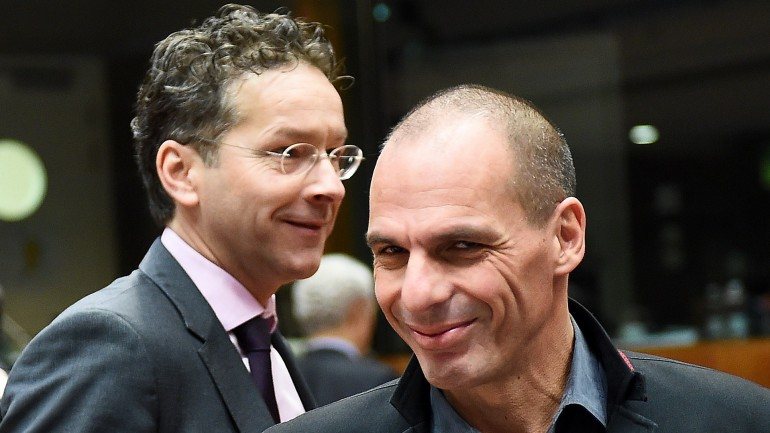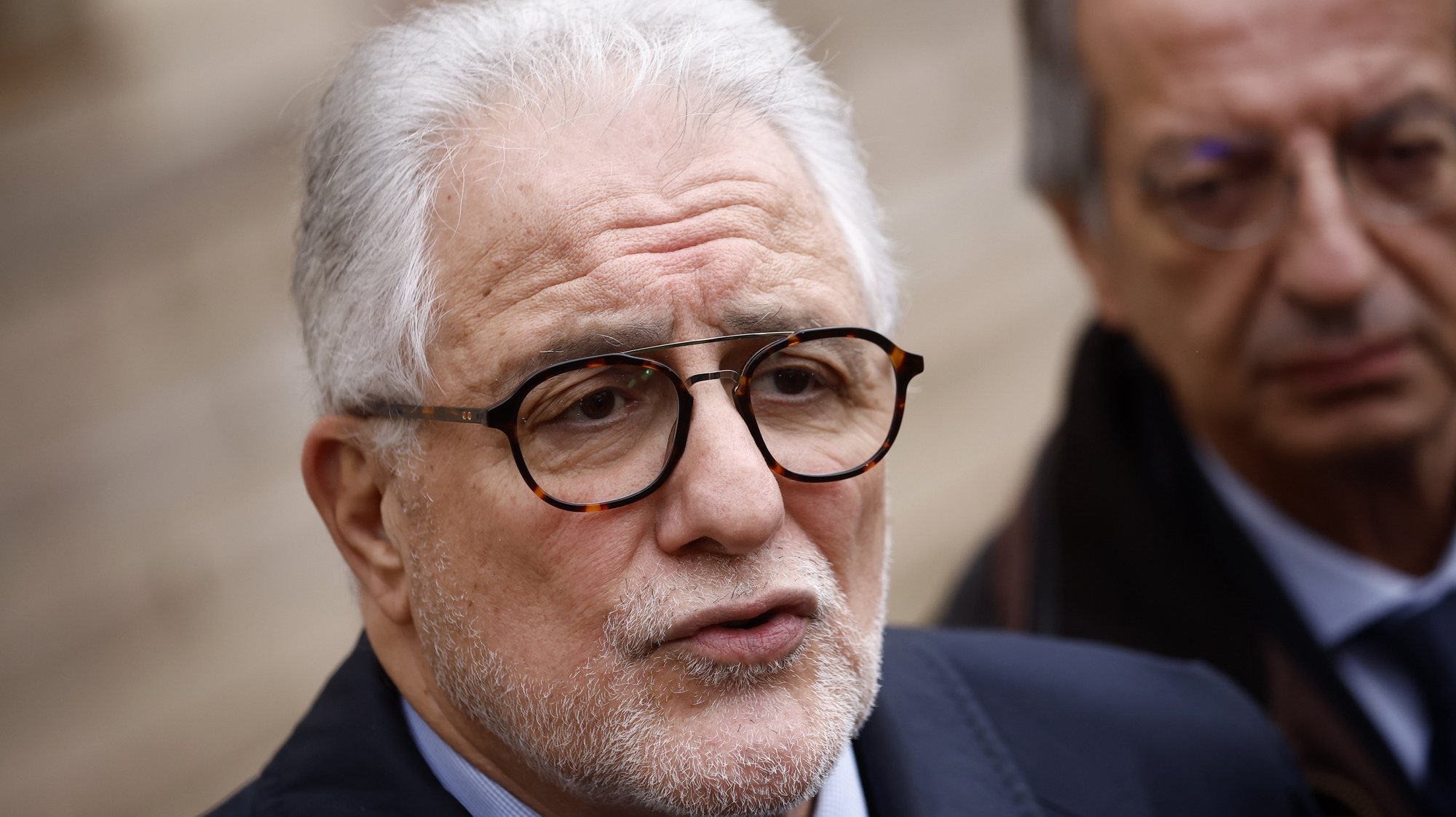O governo grego já entregou ao Eurogrupo o pedido formal de uma extensão do empréstimo europeu ao Estado grego. A informação foi adiantada pelas agências noticiosas internacionais, citando fonte do governo da Grécia e, entretanto, o Eurogrupo já confirmou a informação. A carta grega pede para que se use a “flexibilidade possível no acordo atual”, aproximando-se do discurso de Jeroen Dijsselbloem, para “concluir com sucesso o acordo existente”. Mas isto “com base em propostas do governo grego e das instituições”.
A Comissão Europeia, liderada por Jean-Claude Juncker, já reagiu à carta. Diz que é “um sinal positivo que pode abrir caminho para um compromisso razoável para a proteção da estabilidade financeira na zona euro como um todo”, afirmou um porta-voz da Comissão Europeia. O Eurogrupo irá “analisar de forma detalhada” a carta e dará uma resposta, diz a mesma fonte.
O pedido visa um prolongamento por seis meses do acordo de empréstimo, como rapidamente confirmou, aliás, o presidente do Eurogrupo, Jeroen Dijsselbloem, através da rede social Twitter.
Received Greek request for six months extension.
— Jeroen Dijsselbloem (@J_Dijsselbloem) February 19, 2015
A bolsa de Atenas está, pelas 12h00 desta quinta-feira, a subir mais de 3,5%, segundo a Bloomberg, destacando-se da tendência mista que predomina nos outros mercados europeus. Entretanto, Jeroen Dijsselboem já agendou uma reunião extraordinária do Eurogrupo para amanhã, sexta-feira, às 15h em Bruxelas (14h em Lisboa).
A carta enviada ao Eurogrupo
Na carta enviada ao Eurogrupo, o governo grego diz que durante esta extensão “iremos trabalhar em conjunto, e aproveitar a flexibilidade possível dentro do atual acordo, com o objetivo de ter conclusão bem sucedida [para este acordo] e da avaliação com base em propostas feitas, por um lado, pelo governo grego e, por outro, pelas instituições”. São estas as palavras, cuidadosamente medidas, que constam da carta que transcrevemos na íntegra no final deste texto.
A carta pede, também, que o Banco Central Europeu (BCE) volte a introduzir o regime de exceção (waiver) que permitia aos bancos usarem dívida grega como garantia para obter financiamento em Frankfurt apesar do rating de lixo. O BCE retirou esse waiver, obrigando a que os bancos gregos não tivessem alternativa para o seu financiamento além da plataforma de emergência do BCE, com o banco central nacional como intermediário.
A Grécia pede, também, a continuação da disponibilidade dos fundos do Fundo Europeu de Estabilização Financeira (FEEF) e que possam equacionar-se medidas de alívio do fardo da dívida – medidas que já eram contempladas no acordo de empréstimo (cuja extensão está a ser pedida) mas que dependiam da “aplicação integral” do Memorando de Entendimento subjacente.
A carta promete, ainda, que uma das grandes prioridades do governo grego será – como já tem vindo a ser dado como entendido – o combate à corrupção e à evasão fiscal. Como? A carta não inclui metas concretas sobre esta matéria.
“Para início de conversa, não é mau”
Fonte do Eurogrupo citada pela agência Dow Jones disse, confrontada com a carta, que após esta carta, “as partes continuam um pouco afastadas”. Mas diz que “para início de conversa, não é mau”, afirma a fonte, numa alusão à posição assumida pelo governo grego.
A confirmação de que a Grécia já entregou formalmente este pedido de extensão do acordo de empréstimo (não do programa de resgate), tentando passar a bola para o Eurogrupo, surge no dia em que o Banco Central Europeu (BCE) desmentiu uma notícia do alemão Frankfurter Allgemeine Zeitung (FAZ) de que a autoridade monetária gostaria de ver o país a impor controlos de capitais para estancar a fuga de depósitos que continua a verificar-se na banca grega.
Nos documentos relacionados, pode consultar o ficheiro PDF do “Master Financial Assistance Facility Agreement”. Um documento que em troca da assistência financeira deixava claro que seria necessário promover as políticas determinadas com o Memorando de Entendimento com a troika.
Aqui está a carta enviada por Yanis Varoufakis, na versão original:
Dear President of the Eurogroup,
Over the last five years, the people of Greece have exerted remarkable efforts in economic adjustment. The new government is committed to a broader and deeper reform process aimed at durably improving growth and employment prospects, achieving debt sustainability and financial stability, enhancing social fairness and mitigating the significant social cost of the ongoing crisis.
The Greek authorities recognise that the procedures agreed by the previous governments were interrupted by the recent presidential and general elections and that, as a result, several of the technical arrangements have been invalidated. The Greek authorities honour Greece’s financial obligations to all its creditors as well as state our intention to cooperate with our partners in order to avert technical impediments in the context of the Master Facility Agreement which we recognise as binding vis-a-vis its financial and procedural content.
In this context, the Greek authorities are now applying for the extension of the Master Financial Assistance Facility Agreement for a period of six months from its termination during which period we shall proceed jointly, and making best use of given flexibility in the current arrangement, toward its successful conclusion and review on the basis of the proposals of, on the one hand, the Greek government and, on the other, the institutions.
The purpose of the requested six-month extension of the Agreement’s duration is:
(a) To agree the mutually acceptable financial and administrative terms the implementation of which, in collaboration with the institutions, will stabilise Greece’s fiscal position, attain appropriate primary fiscal surpluses, guarantee debt stability and assist in the attainment of fiscal targets for 2015 that take into account the present economic situation.
(b) To ensure, working closely with our European and international partners, that any new measures be fully funded while refraining from unilateral action that would undermine the fiscal targets, economic recovery and financial stability.
(c) To allow the European Central Bank to re-introduce the waiver in accordance with its procedures and regulations.
(d) To extend the availability of the EFSF bonds held by the HFSF for the duration of the Agreement.
(e) To commence work between the technical teams on a possible new Contract for Recovery and Growth that the Greek authorities envisage between Greece, Europe and the International Monetary Fund which could follow the current Agreement.
(f) To agree on supervision under the EU and ECB framework and, in the same spirit, with the International Monetary Fund for the duration of the extended Agreement.
(G) To discuss means of enacting the November 2012 Eurogroup decision regarding possible further debt measures and assistance for implementation after the completion of the extended Agreement and as part of the follow-up Contract.
With the above in mind, the Greek government expresses its determination to cooperate closely with the European Union’s institutions and with the International Monetary Fund in order: (a) to attain fiscal and financial stability and (b) to enable the Greek government to introduce the substantive, far-reaching reforms that are needed to restore the living standards of millions of Greek citizens through sustainable economic growth, gainful employment and social cohesion.
Sincerely,
Yanis Varoufakis
Minister of Finance
Hellenic Republic


















